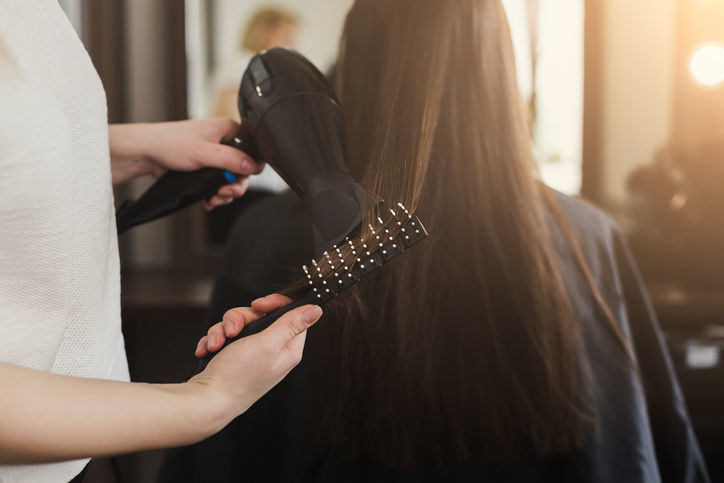PHOENIX — Arizonans having a bad hair day could soon get relief from stylists who aren’t licensed by the state.
On a 31-26 margin the House gave final approval Tuesday to legislation that says people can wash, dry and style someone else’s hair without being licensed as a cosmetologist. That includes the use of curling irons and hair dryers, but no chemicals or scissors.
More to the point, these stylists would legally be able to charge for their services despite the lack of a state license.
Within minutes of that final approval, Republican Gov. Doug Ducey sent out a Twitter message calling the bill a “big win for freedom and Arizona workers,” saying he is “looking forward to signing this bill!”
Tuesday’s vote came over multiple objections from Democrats who pointed out there are diseases that can be spread from customer to customer. They said a fully trained cosmetologist gets extensive training on identifying diseases and on safe practices.
Instead, Senate Bill 1401 will require only that stylists take a course on safety.
Republicans called the concerns overblown.
“You would think we were talking about operating a nuclear reactor here,” said Rep. John Kavanagh, R-Fountain Hills. He said hundreds of millions of Americans manage to shampoo and dry their own hair daily without any training “beyond reading the label.”
“This is like a total no-brainer,” Kavanagh said.
But Kavanagh, under questioning from Rep. Pamela Powers Hannley, D-Tucson, conceded he never had his hair blown dry or styled with a curling iron. She and others talked about the chances of being burned by someone without training.
Other foes mentioned diseases such as methicillin-resistant Staphylococcus aureus, also known as MRSA, which they said can be spread by using the same styling tools on customers. But Rep. Randy Friese, D-Tucson, who is a doctor, conceded he has never treated anyone who caught MRSA from a hair stylist.
The legislation is the latest move to carve out exceptions to state laws that can require upwards of 1,000 hours of training at a state-licensed school to be a cosmetologist.
Lawmakers already decided more than a decade ago that people who do nothing but braid hair for a living do not need state-mandated training and licensing. And the Board of Cosmetology, facing a lawsuit, has stopped trying to enforce training requirements on those whose total practice consists of plucking eyebrows.
The new legislation, however, goes too far for some Democrats.
Powers Hannley said people who go to a hair salon expect that everyone working there is both trained and regulated by the state. This legislation, she said, would require only that any salon employing a hair stylist post a sign informing consumers that isn’t the case.
“The idea that a sign on the wall saying, ‘This activity is unregulated,’ they’re not going to understand that,” she said. Powers Hannley said if her Republican colleagues are determined to go this route the sign should read, “This person has not been trained to do your hair, so buyer beware.”
That, customers would understand, she said.
“This puts the public at an unnecessary risk,” Powers Hannley said.
For Rep. Noel Campbell, R-Prescott, however, the issue was more basic than who is qualified to style hair.
“What we’re really talking about is the right to work” without being regulated, he said.
Campbell said he has talked with cosmetologists and does understand their belief that only those with proper training should be doing this kind of work. And he said there are arguments to be made for training.
But he said that is not enough to overcome his philosophical objections to regulation.
“I’m going to choose the side of free enterprise, workers’ rights to work without being encumbered,” Campbell said.
That philosophy did not sit well with Rep. Isela Blanc, D-Tempe.
“When I hear ‘free enterprise’ and when I also hear ‘deregulation’ … that is code for low wages,” she said.





